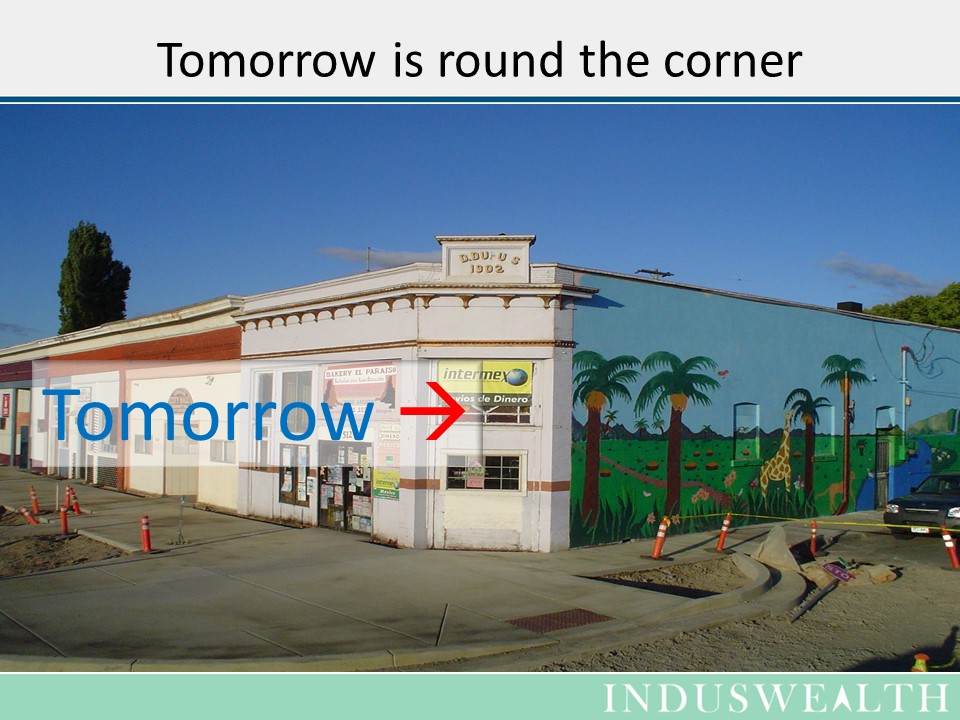If one is given an offer to have Rs 100 today vs Rs 110 tomorrow, there is a high chance that many would opt for money today. Waiting a day for an additional Rs 10 does not seem bearable. Whereas the same person given similar offer in the future may take 110, for instance Rs 100 in 60 days or Rs 110 in 61 days. Now, the one day wait does not seem that unbearable.
We are wired to maximize our current gratification. Tomorrow seems far away, but we don’t see a difference between waiting for 60 and 61 days hence we make these choices. This phenomenon is called hyperbolic discounting.
Any offer where we can enjoy the benefits now and postpone the cost/pain seems irresistible. This is one of the reasons for rampant abuse of credit cards, which allows one to buy now and pay later. This is not just with money, people do this even when it is a threat to their life – people who go in for coronary bypass surgery need to make life style changes for their treatment to be effective. It is found that 90% of the people revert to their old habits with a year – significantly increasing the risk to their lives.
Hyperbolic discounting also makes it difficult to address long term problems – for instance pollution, source of pollution gives immediate “benefit” and adverse impact is in the future, usually borne by future generations. This is also the reason governments are able to get away by running up huge deficits – i.e. we are consuming today and the bills will be paid in the future, usually by the next generation.
This does not mean we are irrational, it’s just that our wiring makes us behave this way. We need to look at this to see if there are instances where this behavior is impacting our overall wellbeing – this includes the wellbeing of our “current self” as well as the our “future self”.
In a famous marshmallow experiment children were offered a marshmallow now or 2 marshmallows in 15 mins. It was found that the children who were able to wait were significantly more successful in their academics and professional lives.
Key here is to delay gratification – this is easier said than done. But it helps to understand our wiring for hyperbolic discounting. It also helps to come with strategies that will help us deal with these effectively. Strategies suggested by research are
- Understand oneself
- Identify goals that one wants to accomplish
- Create a plan with tangible milestones to reach the goals
- Use the plan act as roadmap and checklist
- Reward oneself at each milestone.
One needs to understand that delaying gratification is about exercising self-control. Self-control is a limited resource; it’s like muscle strength: the more we use it, the less remains in the tank, until we replenish it. Rewarding oneself periodically will help rest and replenish self-control and helps one stay the course.
Instead of having the party today, let’s have a small treat tonight and have the party tomorrow, because tomorrow is round the corner.
